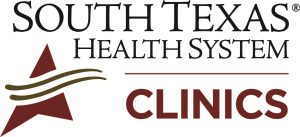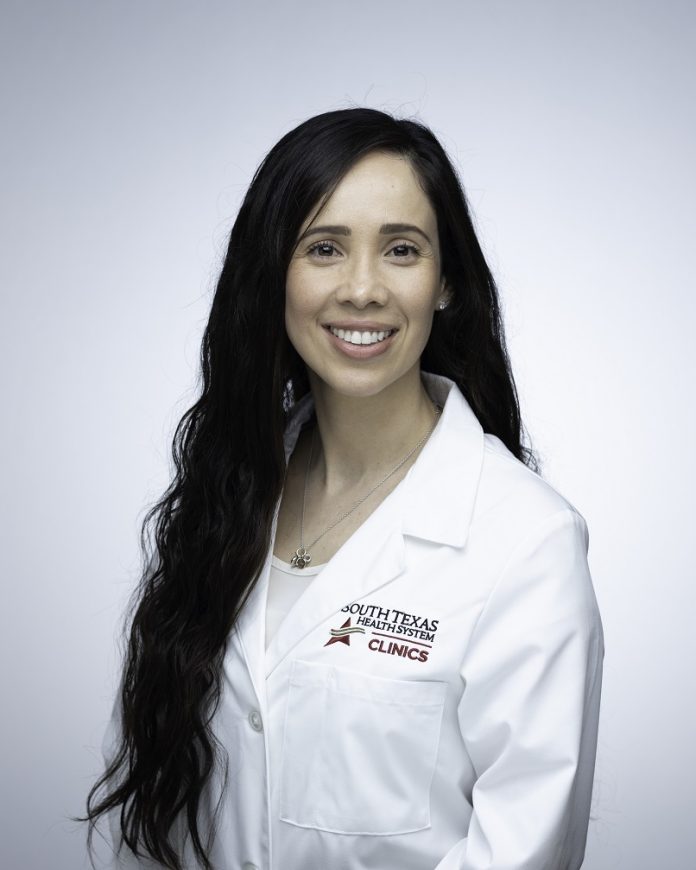
Get to Know the Signs and Symptoms of Diabetes and Learn What to Do If You Are Diagnosed
Priscila Ibarra Becerra, MD, is a board-certified family medicine physician who provides services at South Texas Health System Clinics in Edinburg. At this easily accessible location, she treats patients ranging in age from 4 years to older adults for a wide range of conditions.
Dr. Ibarra Becerra’s number one priority is helping to keep you and your family healthy. In order to do just that, she provides a wide range of services including annual wellness visits, family planning, preventive medicine, recommended screenings, well-woman exams and more. She also helps patients manage chronic conditions, including diabetes.
According to the Centers for Disease Control and Prevention, the number of people with diabetes today is higher than it has ever been. People are also developing diabetes at younger ages and at higher rates. In fact, according to the National Diabetes Statistics Report, nearly 1 in 10 Americans have diabetes.
Below, Dr. Ibarra Becerra shares important information about this increasingly common condition.
Q: What is diabetes?
A: Glucose, which comes from the food you eat, is a major source of energy for your body. To help your body convert the glucose from food into energy, your pancreas makes a hormone called insulin. If your body doesn’t make enough insulin, or if it doesn’t process insulin well, the glucose remains in your blood instead of being used to create energy.
Diabetes, which is sometimes called hyperglycemia, is a chronic condition that occurs when the level of glucose in your body is too high. There are several ways to diagnose diabetes. Testing for this condition should be carried out in a healthcare setting (such as your doctor’s office or a lab).
Q: What are the types of diabetes?
A: The different forms of diabetes are type 1, type 2 and a condition called gestational diabetes, which can occur during pregnancy. Type 1 diabetes typically develops in childhood or adolescence and is caused by an autoimmune response that destroys the cells in the pancreas that produce insulin. Type 2 diabetes is more common and often develops in adulthood, although it is becoming increasingly common in children and adolescents. It is caused by a combination of genetic and lifestyle factors, including obesity and physical inactivity.
Q: What are the signs and symptoms of diabetes?
A: Common signs and symptoms of type 1 diabetes can include:
• Frequent urination
• Excessive thirst
• Feeling hungry all the time
• Feeling tired
• Blurred vision
• Losing weight suddenly without trying, even with increased appetite
• Nausea and vomiting
Common signs and symptoms of type 2 diabetes can include:
• Frequent urination
• Excessive thirst
• Feeling hungry all the time
• Feeling tired
• Blurred vision
• Frequent infections or slow-healing cuts and sores
• Tingling, pain, or numbness in the hands or feet
Q: What are the complications of diabetes?
A: Both types of diabetes can lead to serious complications, including heart disease, stroke, kidney disease nerve damage, and vision loss. That’s why it is so important to manage diabetes effectively and to prevent its development, if possible, in the first place.
Q: How can diabetes be managed and prevented?
A: Type 2 diabetes can often be prevented by adopting healthy lifestyle habits like regular exercise, maintaining a healthy weight and eating a balanced diet.
Once diagnosed, the two goals of diabetes treatment are to make sure you feel well day-to-day and to prevent or delay long-term health risks. For those who have already developed diabetes, it is important to work closely with your healthcare team to develop a personalized treatment plan that includes monitoring blood sugar levels, taking medication as prescribed and making lifestyle changes.
Priscila Ibarra Becerra, MD
1200 S. 10th Ave. | Edinburg, TX 78539
After graduating from Universidad Autónoma de Guadalajara in Mexico, Dr. Ibarra Becerra completed her Family Medicine residency at the University of Texas Health Science Center in San Antonio. She speaks both English and Spanish.
TO MAKE AN APPOINTMENT: Schedule online at sthsclinics.com or call 956-292-0781
Virtual Visits Available | Walk-ins Welcome
Monday through Friday, 7 a.m. – 4 p.m.
Accepts Medicare, Medicaid and most medical insurance plans
[STHS Clinics logo]
For language assistance, disability accommodations and the nondiscrimination notice, visit our website.




